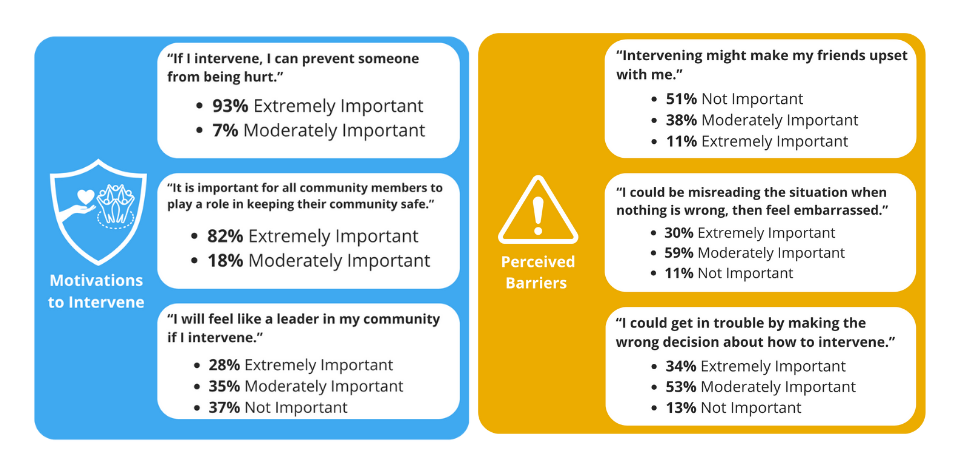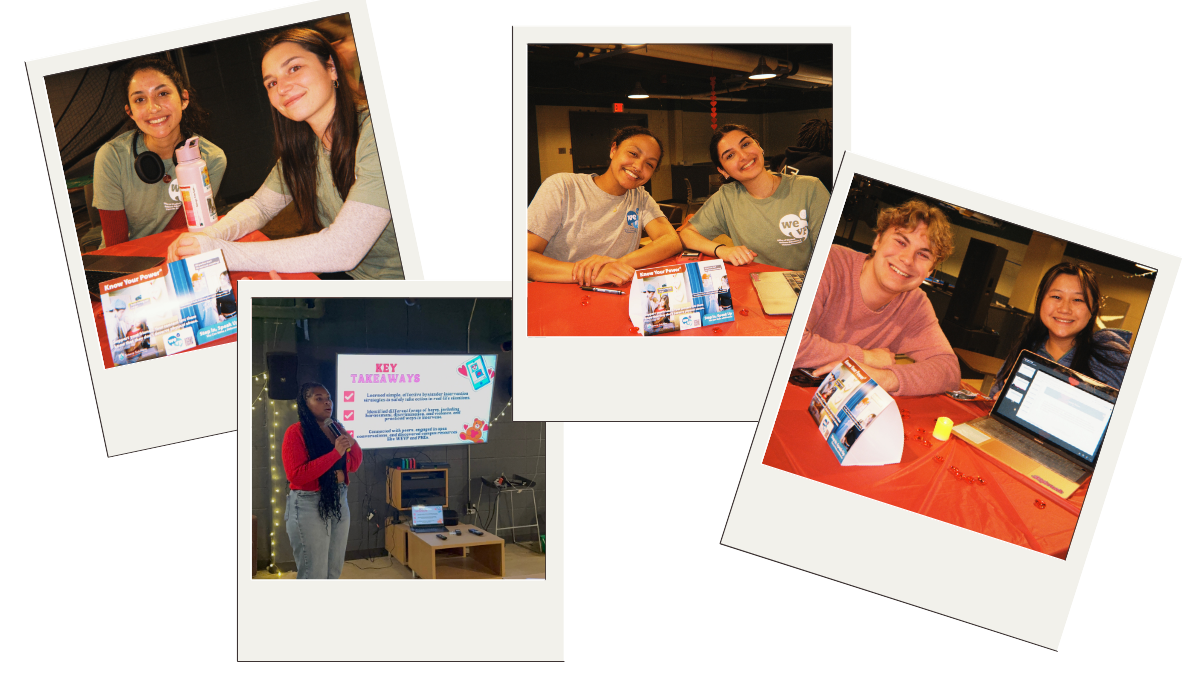Power of the Program
A Spotlight on Franklin & Marshall College and Know Your Power®

Location:
Lancaster, Pennsylvania
Soteria Solutions is thrilled to highlight Franklin & Marshall College and their incredible commitment to bystander intervention, social norms change communication, and the integration of Bringing in the Bystander® with the Know Your Power® (KYP) campaign.
Know Your Power images were placed throughout academic buildings, dormitories, the library, the College Center and the Student Wellness Center, ensuring high-dosage exposure and saturation.
Franklin & Marshall implemented Know Your Power in the Spring of 2025. Survey results conducted with 147 respondents were truly heartening, revealing the ways repeated exposure to positive imaging can increase knowledge, improve awareness, and shift the normative environment surrounding bystander intervention. Know Your Power images were placed throughout academic buildings, dormitories, the library, the College Center and the Student Wellness Center.
Of the 79% of respondents who had seen the campaign images, 35.7% saw the images 4 - 6 times, 21.4% saw them 7 - 9 times, and 19% saw them 10+ times.
As a result of the Know Your Power campaign …
62% of students agree that they are more aware of potentially dangerous situations.
73% of students agree that they could see themselves using at least one of the suggested interventions.
55% of students agree they learned at least 1 new strategy or idea for how to help in a situation like those depicted in the different campaign scenarios.
62% of students agree they learned about at least 1 campus resource that could help in a situation like those depicted in the different campaign scenarios.
74% of students agree they want to learn more about being an active bystander.
Know Your Power images were placed throughout academic buildings, dormitories, the library, the College Center and the Student Wellness Center, ensuring high-dosage exposure and saturation.
According to the CDC’s “Veto Violence” website, “social norms refer to values, beliefs, attitudes, and/or behaviors shared by a group of people and are often based on what people believe to be normal, typical, or appropriate. They function as unspoken rules, guidelines, and/or expectations for how people behave.” Young people are especially susceptible to social norms, as they are often in new, different, and unfamiliar environments where a sense of belonging and “fitting in” is equated with safety, popularity, and acceptance. Social norms - including how someone believes their actions will be perceived - greatly impact a young person’s willingness, confidence, and persistence to keep interrupting harm. Adolescents must believe that their actions will be validated by their peers, not retaliated against, in order to build the confidence to keep intervening with their words and actions. Soteria Solutions recently highlighted the critical role of social norms on adolescents’ ability to intervene in situations of bullying, harassment, and harm.
Respondents were also asked how important each of the following statements would be when considering whether to intervene – gauging the social norms of their college environment and their expectations of how their peers would react. Respondents could select “not important at all”, “moderately important,” or extremely important for each statement.
Valuable insights from the survey include:
We at Soteria Solutions understand that for adolescents, programs that appeal to morality or “doing the right thing” are not enough. They must address how young people navigate group dynamics, build courage, and strategize ways to speak up that feel safe, realistic – and socially supported. That’s exactly what Bringing in the Bystander® and Know Your Power® for Colleges are designed to do: help students develop the skills and confidence to speak up in ways that feel achievable and safe in real-life situations.It’s not just about telling them what they should do — it’s about providing tools they can actually use in situations where their values are tested.
Know Your Power created a unique and engaging way to educate my campus community about the importance of being an informed and active bystander. Through its specialized and curated materials, my peers not only learned the key signals and strategies for intervening safely and effectively, but they were also able to visualize how these tactics could be applied within our own community. I truly believe this program empowers students to take meaningful action and foster a safer, more supportive campus environment.
– Student Peer Educator, F & M
Franklin & Marshall College
It’s not just What you do, it’s How:
Franklin & Marshall’s Implementation
1. High-Dosage Exposure and Saturation: A large volume of posters across multiple campus locations transformed the message from a single announcement to an ongoing, highly-visible campaign.
2. Impactful Campaign Launch: The campaign was led and launched by an entirely student-run event, fostering immediate buy-in, early engagement, and establishing a positive association with the program from the get.
3. Sustained Peer-to-Peer Engagement: Weekly information tables run by student peer educators resulted in sustained, in-person engagement with Know Your Power. The conversation moved beyond the Know Your Power posters to students asking questions, deepening their understanding of bystander intervention strategies, and getting involved in-person. This sustained, peer-to-peer engagement helped reinforce messaging, spark conversation and connection, and translate awareness into concrete action.
The power of any program can only be realized through the people who deeply believe in it. We want to thank the peer educators and Sam Thiry, Director of Wellness Programs, for their leadership and commitment to integrating Know Your Power into the values, relationships, and fabric of their campus. The peer educators took ownership of transforming the social norms by which they live, work and play and that is the kind of preventative work that will sustain prosocial bystander behavior long after graduation. We look forward to a continued collaboration with Franklin & Marshall and cannot wait to hear updates on how both Bringing in the Bystander and Know Your Power contribute to your work in creating a campus free from the threat and experience of violence.
Know Your Power® is available for high school, college, or military audiences and can be customized for workplaces or community-wide use. Discover how Know Your Power® campaigns can help your organization build a culture of accountability and proactive bystander intervention. Contact Soteria Solutions today at info@soteriasolutions.org to explore a tailored solution for your campus, school, or workplace.
Bystander intervention awareness event that Peer Health Educators coordinated in tandem with the KYP campaign. During this event, Peer Health Educators coached participants on how to respond to a variety of scenarios, helping raise awareness about the KYP campaign and to promote the BITB® training.






